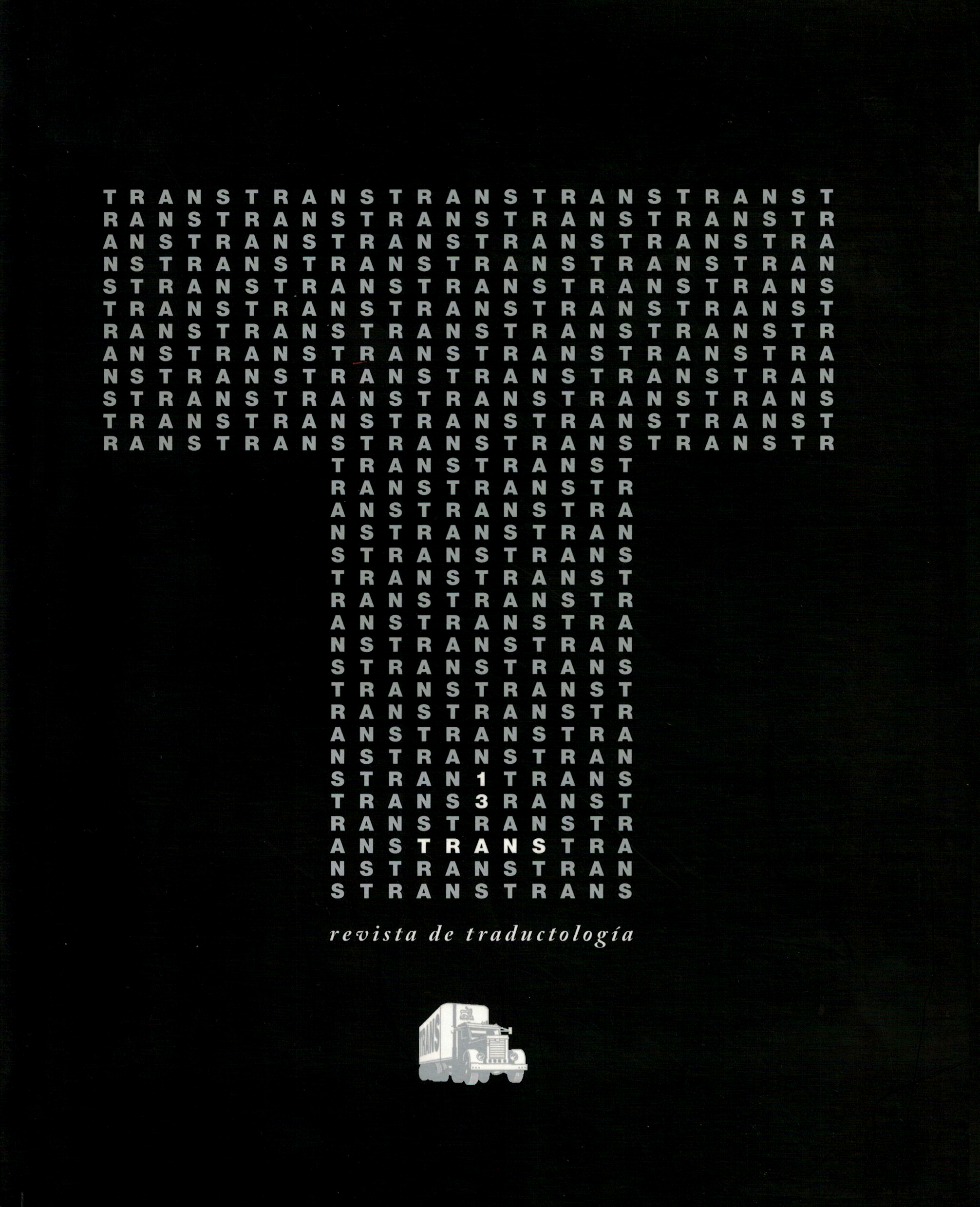Hacia una tipología del malapropismo shakespeareano y sus estrategias de traducción
DOI:
https://doi.org/10.24310/TRANS.2009.v0i13.3156Keywords:
traducción, teatro, relevancia, Shakespeare, malapropismo, paronimia.Abstract
Este artículo presenta una tipología de malapropismos y otros lapsus léxicos basada en los casos encontrados en el original inglés de la obra de Shakespeare Mucho ruido y pocas nueces, junto a las soluciones aportadas por cinco traductores al español de ejemplos de los seis tipos catalogados. Al basarse esta tipología principalmente en la evocación de un término in absentia por medio de su relación paronímica con otra palabra erróneamente emitida, el traductor puede aplicar a este caso específico una amplia gama de estrategias recogidas en el análisis descriptivo, siempre con la conciencia auditiva de la descodificación inmediata requerida por el espectador teatral. La base epistemológica incluye referencias a las máximas conversacionales de Grice, a la teoría de la relevancia de Sperber y Wilson y la aplicación de esta última a la traducción por parte de Gutt.
Downloads
Metrics
Publication Facts
Reviewer profiles N/A
Author statements
Indexed in
-
—
- Academic society
- N/A
- Publisher
- Universidad de Málaga
Downloads
Published
How to Cite
Issue
Section
License
All contents published in TRANS. Revista de Traductología are protected under the Creative Commons Attribution-NonCommercial-ShareAlike 4.0 International (CC BY-NC-SA 4.0) license. All about this license is available in the following link: <http://creativecommons.org/licenses/by-nc-sa/4.0>
Users can copy, use, redistribute, share and exhibit publicly as long as:
- The original source and authorship of the material are cited (Journal, Publisher and URL of the work).
- It is not used for comercial purposes.
- The existence of the license and its especifications are mentioned.
- ShareAlike — If you remix, transform, or build upon the material, you must distribute your contributions under the same license as the original.
There are two sets of authors’ rights: moral and property rights. Moral rights are perpetual prerogatives, unrenounceable, not-transferable, unalienable, imprescriptible and inembargable. According to authors’ rights legislation, TRANS. Revista de Traductología recognizes and respects authors moral rights, as well as the ownership of property rights, which will be transferred to University of Malaga in open access.
The property rights are referred to the benefits that are gained by the use or the dissemination of works. TRANS. Revista de Traductología is published in an open access form and it is exclusively licenced by any means for doing or authorising distribution, dissemination, reproduction, , adaptation, translation or arrangement of works.
Authors are responsable for obtaining the necessary permission to use copyrighted images.













21.png)
